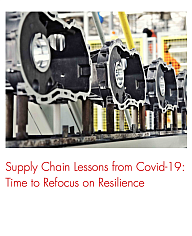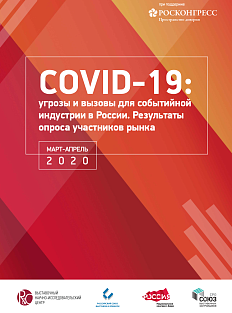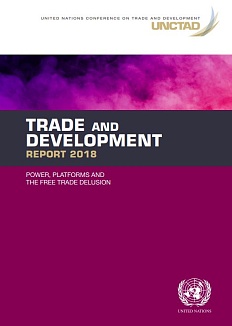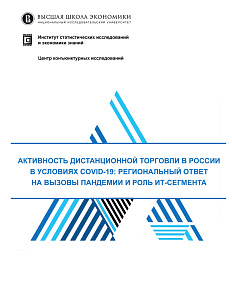For decades, low-cost supply and minimal inventory were the key tenets of supply chain management. The work by Bain & Company stresses the ineffectiveness of the traditional approach to supply chain management in the current economic conditions. According to the authors of the publication, flexibility and resilience are now a prerequisite for successful supply chain functioning amid an economic crisis. The publication also describes main instruments that could help build adaptive supply chains in the current economic environment.
The Roscongress Foundation presents the salient points of the publication accompanied by fragments of broadcasts of relevant panel discussions from the business programme of international events held by the Roscongress Foundation.
The present economic crisis forces businesses to reconsider existing supply chains with a view to making them more adaptive and flexible.
As China sent workers home and shuttered businesses in January to contain the coronavirus outbreak, the steady flow of vital parts to global supply chains slowed or stopped. Confronted with an unprecedented public health crisis, companies everywhere have rightly concentrated first on ensuring employee safety and supporting their local communities. Meanwhile, manufacturers in critical industries scrambled to find alternative suppliers to keep factories running.
Bain experts suppose that once the pandemic passes and the global economy begins to function normally, many senior executives might assume they should manage their global supply networks as in the past, with the lowest-cost supply and minimal inventory levels. While that approach worked in a stable global economy, it now brings increased risk, the experts warn.
The authors cite an example of a global electronics manufacturer suffering a substantial drop in revenue and net income due to supply chain disruptions caused by Japan’s Kumamoto earthquake in April 2016. It took a year for the company to recover. Another example is a global computer maker which faced a decline in share price and lost market cap because of the continuing US—China trade war, and spent three months overcoming the difficulties.
The authors point out that when US—China trade tensions flared last year, leading companies already started to rethink the cost of network risk and invest in more resilient supply chains.
Successful companies are now investing in supply chain resilience to minimize risks associated with the crisis and to benefit from improved efficiencies.
Bain analysis shows that companies that invest in supply chain resilience reduce product development cycles by 40% to 60%. As production teams adjust faster to changes in market demand, revenue growth accelerates. Companies with flexible supply chains expand output capacity 15% to 25% by optimizing operations.
When the pandemic broke out, the authors note, companies that already have flexible supply chains (such as Giorgio Armani, Gucci, and Prada) were able to promptly repurpose their production lines to make the urgently needed medical supplies.
Video: https://roscongress.org/sessions/soedinyaya-evraziyu-na-praktike/search/#00:08:41.983
According to Bain & Company, advanced digital tools in supply chain management help companies minimize risks and reduce losses associated with negative impacts of supply chain disruptions.
The authors single out the following pillars of adaptive supply chains: network agility, digital collaboration, real-time network visibility, rapid generation of insights, and empowered teams.
Prompt decision-making is at the core of adaptive supply chains. Advanced technologies (such as cloud-based platforms, 5G technologies, blockchain, big data, etc) improve the quality and speed of decision making, facilitate communication with suppliers and other external partners in a secure environment, and provide tools for advanced analytics, thus offering extra opportunities and minimizing risks associated with supply chain disruptions.
For more information about possible ways to stabilize the economy during the pandemic, please see the StayHomeEconomy special section of the Roscongress information and analytical system, and the Trade policy and Supply chain management sections about the development of global trade.






